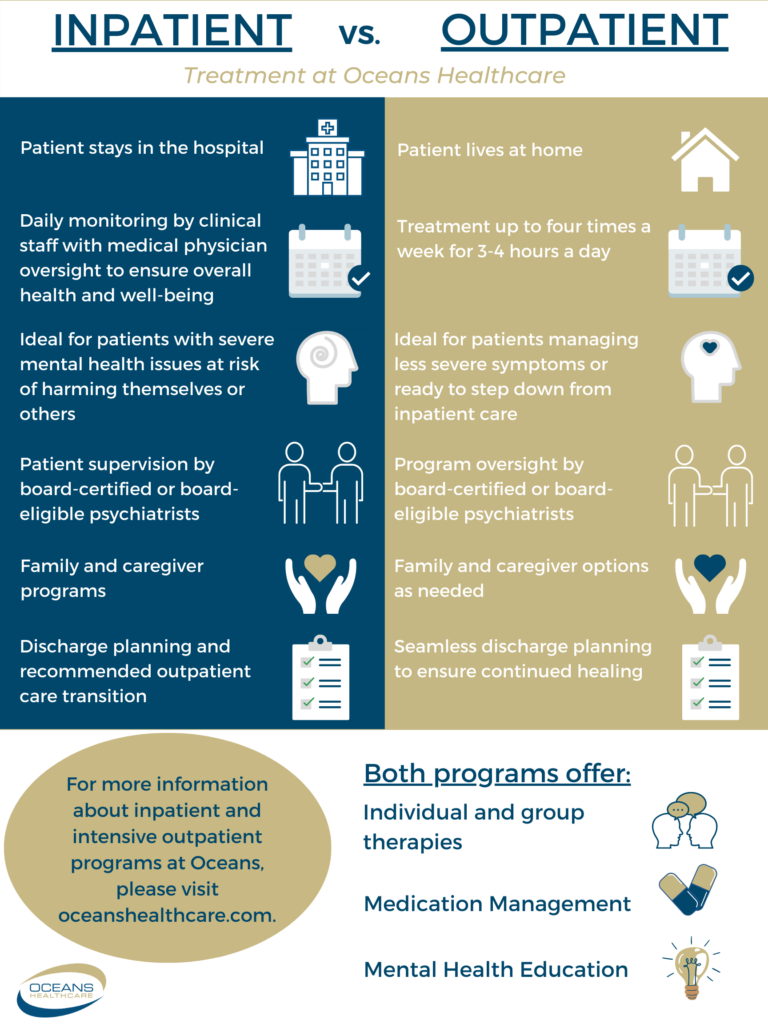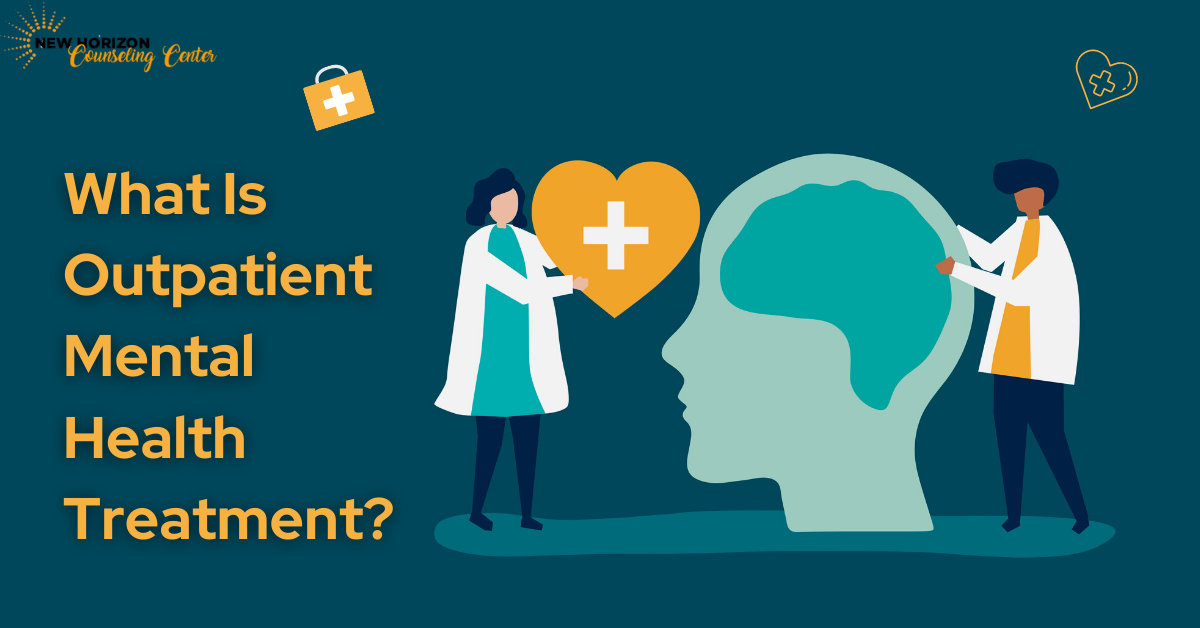Can you believe that almost 44 million adults in the U.S. experience a mental health condition annually, many of whom need ongoing support? Outpatient mental health services have become a cornerstone in addressing these needs without requiring hospitalization. This model allows individuals to receive critical therapy and counseling while maintaining their daily routines and responsibilities.
Outpatient mental health services trace back to the community mental health movement of the 1960s, emphasizing the importance of accessible care. They provide a comprehensive approach, combining psychotherapy, medication management, and support groups. Statistically, patients engaging in outpatient care often show significant improvement, fostering a balance between professional help and personal autonomy.

Defining Outpatient Mental Health
Outpatient mental health refers to services where patients receive care without staying overnight in a hospital. These services include therapy sessions, counseling, and psychiatric evaluations. Patients get the help they need while continuing with their daily lives.
Outpatient care is ideal for individuals who have stable conditions but still require professional support. It helps them manage their symptoms and improve their mental health. The flexibility of outpatient programs is essential for many people.
These services are commonly offered at community mental health centers, private practices, and specialized clinics. Treatment options can be customized to suit each individual’s needs. The goal is to provide effective care while maintaining the patient’s independence.
Outpatient mental health also includes group therapy and support groups. These sessions help individuals connect with others facing similar challenges. This sense of community can be a powerful aid in their recovery journey.
The Importance of Outpatient Mental Health Services
Outpatient mental health services play a crucial role in the mental health care system. They provide necessary support and treatment without needing overnight stays. This approach helps individuals maintain their everyday lives while receiving care.
These services also reduce the burden on hospital resources, making care more accessible. For many, outpatient care is the first step toward recovery. It offers a less intimidating environment compared to inpatient care.
Outpatient services are tailored to meet diverse needs, from therapy sessions to medication management. They are especially beneficial for those with stable conditions. Flexibility is a key advantage, helping patients balance treatment with their daily responsibilities.
Support groups and community resources add another layer of benefit. These sessions offer peer support and shared experiences. This collective approach can significantly aid the healing process.
Therapeutic Benefits of Outpatient Services
Therapy sessions in outpatient settings provide personalized care. Patients receive one-on-one attention from qualified professionals. This helps in addressing specific mental health issues effectively.
Group therapy sessions are equally beneficial. They allow participants to share experiences and coping strategies. Such interactions can improve mental health by fostering a sense of community.
Outpatient services also ensure continuity of care. Patients can return regularly for follow-up sessions. This consistency is vital for long-term mental health improvement.
Reducing Healthcare Costs
Outpatient care is generally more cost-effective than inpatient care. It reduces the need for hospital admissions and long-term stays. This makes mental health services accessible to a larger population.
Insurance companies often cover outpatient services. This financial support encourages more people to seek help. Lower costs do not compromise the quality of care.
Additionally, outpatient care helps in early intervention. Treating issues early can prevent them from becoming severe. This proactive approach saves both healthcare costs and human suffering.
Community and Social Support
Outpatient services often include community-based programs. These initiatives focus on building a supportive network. Patients can rely on this community for emotional and practical support.
Support groups form a significant part of these services. They provide a platform for sharing experiences. This collective wisdom aids in coping with mental health challenges.
Engaging with a supportive community enhances recovery. Patients feel less isolated. This sense of belonging is critical for mental well-being.
Types of Outpatient Mental Health Services
Various types of outpatient mental health services cater to different needs. One common type is individual therapy sessions. These sessions offer personalized support and treatment plans tailored to each patient.
Group therapy is another essential outpatient service. In these sessions, multiple individuals facing similar issues come together. This setting provides peer support and collective healing.
Medication management is a crucial outpatient service offering. Psychiatrists and medical professionals monitor and adjust medications for the best outcomes. This ensures that patients are on the right track with their treatment plans.
Specialized programs focus on specific mental health conditions, like anxiety or depression. These programs often include a combination of therapy, counseling, and educational workshops. They provide comprehensive care targeting the unique aspects of each condition.
The Process of Accessing Outpatient Mental Health Services
Accessing outpatient mental health services often begins with a visit to a primary care doctor. The doctor can assess the patient’s needs and provide a referral. This initial step ensures the patient receives the appropriate level of care.
Once referred, the patient can contact the outpatient facility to schedule an appointment. Intake forms and assessments are typically required. These documents help the mental health professional understand the patient’s background and current situation.
During the first appointment, a mental health professional will conduct an evaluation. This evaluation helps to create a personalized treatment plan. The plan may include therapy, medication management, or other services.
Patients can often choose from various treatment options based on their needs. Options may include individual therapy, group therapy, or specialized programs. This flexibility allows for tailored care that fits the patient’s lifestyle.
Many outpatient centers offer additional support services. These may include educational workshops, support groups, and case management. Such resources enhance the overall treatment experience.
Insurance coverage is typically discussed during the intake process. Most outpatient services accept various insurance plans, making care more accessible. Financial assistance or sliding scale fees may also be available.
The Impact of Outpatient Mental Health Services on Patient Recovery
Outpatient mental health services significantly affect patient recovery. They provide continuous support without disrupting daily life. This ongoing care helps patients manage their conditions effectively.
Regular therapy sessions allow for consistent progress. Patients can track their improvements and adjust treatments as needed. The ability to attend sessions regularly fosters steady recovery.
Group therapy and support groups offer critical social support. Sharing experiences with peers can reduce feelings of isolation. These interactions often lead to meaningful emotional connections.
Customized treatment plans make a big difference. Each patient’s unique needs are addressed, making care more effective. Tailoring treatment boosts the chances of successful recovery.
Access to a range of services enhances overall wellness. Educational workshops, stress management classes, and other resources play an important role. These additional supports contribute to comprehensive recovery.
Outpatient services often have excellent follow-up care. Regular check-ins ensure patients remain on the right path. This continuous monitoring is crucial for long-term recovery.
Key Takeaways
- Outpatient mental health services offer treatment without hospital stays.
- They include therapy sessions, counseling, and medication management.
- Patients can continue their daily lives while receiving care.
- This approach provides regular support and follow-ups for steady recovery.
- Group therapy offers social support, reducing feelings of isolation.

Frequently Asked Questions
Outpatient mental health services are essential for many seeking help while maintaining daily responsibilities. Below are some frequently asked questions to help you understand these services better.
1. How do I know if I need outpatient mental health services?
Consulting your primary care doctor or a mental health professional can determine if outpatient services suit you. If you experience ongoing emotional issues affecting your daily life, this could be an effective option.
These professionals will assess your symptoms and recommend the best treatment plan. Outpatient sessions may include talking therapies or medication management, depending on your needs.
2. What types of therapies are available in outpatient mental health services?
You can access various therapies such as cognitive-behavioral therapy (CBT), individual counseling, and group sessions. These therapies aim to address different mental health challenges and improve coping mechanisms.
The choice of therapy often depends on individual needs, preferences, and specific conditions being treated. Your therapist will help select the most appropriate approach for you.
3. How long do outpatient mental health treatments typically last?
The duration of outpatient treatment varies depending on individual cases and the type of therapy used. Some people may need only a few weeks of treatment, while others require several months or longer.
Your progress is regularly reviewed to ensure that the treatment remains effective. Your therapist might adjust the frequency of your sessions based on improvement and ongoing needs.
4. Are outpatient mental health services covered by insurance?
Most insurance plans cover some form of outpatient mental health services, including therapy sessions and medication management. It’s essential to check with your provider to understand what specific treatments they cover under your plan.
If cost is a concern, many facilities offer sliding scale fees based on income or financial aid programs to make care more accessible.
5. Can I switch therapists if I’m not comfortable with my current one?
If you’re uncomfortable with your current therapist, it’s okay to find someone else who suits you better. Building trust and a good rapport is crucial for effective treatment, so feeling comfortable during sessions is essential.
You can discuss this change with your current therapist or directly contact the facility offering the service to arrange a switch. The goal is always to ensure you get the best possible care tailored to your needs.

Conclusion
Outpatient mental health services offer vital support, allowing individuals to receive care without disrupting their daily routines. They provide a range of therapies and treatments tailored to individual needs, promoting effective and sustainable recovery. The flexibility and accessibility of these services make them an invaluable part of the mental health care system.
For patients, outpatient services mean continuous support and easier access to professional help. With personalized treatment plans, regular follow-ups, and community support, recovery becomes a manageable and achievable goal. This holistic approach significantly enhances the quality of life for many individuals dealing with mental health challenges.
